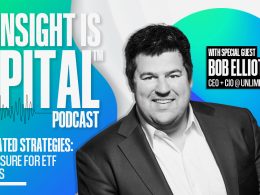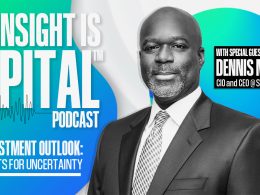When investing in real estate, investors have several options to choose from. Private mortgages are becoming quite popular as it provides investors with security on an individual property itself and they know exactly where their money is being held.
Investors can create their own portfolio of mortgages and can choose from several mortgage types such as residential vs. commercial, first mortgage vs. second mortgage, with a variety of terms and loan-to-values.
Just like any other investment, it’s important to determine your risk tolerance and to determine your expected rate of return. Other factors that need to be determined include how much capital the investor is working with, and time horizon.
Once this is determined, the right investor can be aligned with the right borrower.
A typical rate to expect for first mortgage residential is 6-8% with a loan-to-value at or below 70%. For a second mortgage an investor can earn anywhere between 10-15%, with an approximately 75% loan-to-value. On the higher end, an investor will be looking at a loan-to-value of 85% to achieve an interest rate of 14-15%.
For commercial properties it’s a little lower on the loan-to-value, just because of the nature – it’s not a residential property so it’s not going to sell as fast as a residential home would. So for commercial properties around 50-75% loan-to-value an investor can earn anywhere between 7-9% as a return for a first mortgage, and for a second mortgage between 65-75% loan-to-value the investor could earn between 10-12% per year.
Just as with any other investment, there are risks associated with investing in private mortgages. There are 3 main risks associated with investing in private mortgages. First, there is market risk. If the market takes a downturn across the board, home prices may fall and the loan-to-value may increase as a result of that.
Liquidity risk – your money is in there for a set amount of time. Typical private mortgages are 1-2 years in length. An investor’s money is locked in for that entire time.
And of course, default risk. You never know if the borrower is going to make the payment. They might lose their job or have some type of emergency or family breakdown which may cause them to miss payments. There is always that default risk.
To help mitigate these risks, strong underwriting practices are essential in every deal that an investor looks at. An investor should always choose an appraiser, ideally through a third party CRA certified appraiser to ensure that the investor knows what the value of the property is and that they’re comfortable with it.
When looking at a borrower’s credit, an investor should always want to ensure that there is sufficient income to make the payments. An investor should always ask for a recent notice of assessment and any other documents to ensure the borrower can make payments and on time.
With every mortgage there are mortgage rules in place so in the case of default the mortgage rules come into play where on the next frequency payment, the lawyer that’s representing the investor can apply for power of sale proceedings. During that time it takes roughly 6-9 months for the property to be sold as a worst case scenario.
Investors will also want to ensure there is an exit strategy in place so that they can be paid out in the event of default. Whether the exit strategy is refinanced through a bank or the exit strategy is having that property sold, an investor should always have something in place prior to funding.
For the investor there’s no actual cost to get into a private mortgage. There are costs associated, but those costs are picked up by the borrower. The private mortgages are eligible for RSP & TFSA through certain trust companies.
The following is a Q&A about investing in private mortgages with Justin Rosello, VP, Private Lending, at Union Capital.
Transcript:
Investing in Private Mortgages
A conversation with Justin Rosello, Vice President, Lending at Union Capital
Q: If a client asked you where would you invest in real estate, what would your answer be?
Justin Rosello: When investing into real estate, clients have several options to choose from. Whether it be purchasing a town, semi-detached, condos as a buy-and-hold strategy, whether they put a tenant in there or not, be the landlord, purchasing condos and selling them as assignments, you have option in duplex multi-residential properties, student rentals. These are all purchasing and becoming owners of the property.
You can be an investor and purchase a fund or a stock. You can invest in a Mortgage Investment Corporation or a Real Estate Investment Trust.
For me personally, I would choose private mortgages. The main difference in choosing a private mortgage, and the reason I stand behind it, and not just because I do it for a living, is you have security on the individual property itself. You know exactly where your money is being held, it’s not in a pool, it’s not in a group of different properties or buildings, you’re not a landlord, it’s more hands off, more turn-key.
You have a managed investment and if you invest in several private mortgages you create your own portfolio of mortgages that you choose having different loan-to-values and different first and second (mortgage) opportunities. So for that reason, I’m a big fan of private mortgages. It may not be as lucrative as some of the other opportunities but on average with a private mortgage you’re going to make anywhere between a very conservative 6% to a more aggressive 12-13% interest rate per year.
Q: How would one go about and invest in a private mortgage?
Justin Rosello: So typically what we do is we have a brief conversation so every new investor that we meet we’ll have a general conversation to figure out what their risk tolerance is and if they’re not too familiar with the risk tolerance, we just to know what’s their expected rate of return.
Based on their expected rate of return we go over what risk there will be. The higher the loan-to-value, the more risk and the higher the return. The lower the loan-to-value, the less risk, the lower the return.
We ask them what areas they are familiar with. Are they familiar with their home towns? Is it strictly the GTA? Is it outside the GTA?
We want to know how much capital they’re working with. If it’s under $100,000, then we know that first mortgages are probably not for them, that they’re looking for second mortgages. And I also like to ask the investor, what’s your time frame for investing? Are they ready to go right now? Do they need a week or two to make a decision? Just to get an idea.
We have a lot of business coming through law firms or companies that require private funds they typically get it quickly. We want to get an idea which investors fit the right project, the time frame, location and risk tolerance. It all adds up to trying to find the right individual for the right investor.
Q: What are the risks associated with investing in a private mortgage, and what do you do to reduce the risk for the investor?
Justin Rosello: The risks associated are - nothing is guaranteed except maybe a GIC or the money in your chequing account – so there’s always risk in any type of investment.
Specifically with private mortgages, generally you have market risk. If the market takes a downturn across the board, home prices may fall, your loan to value may increase as a result of that.
Liquidity risk – your money is in there for a set amount of time. We do deals for one year so during that time that money is stuck in there for that year.
And of course, default risk. You never know if the borrower is going to make the payment. If they lost their job, if they have some type of emergency or family breakdown. There is always that default risk. And of course with every mortgage there’s mortgage rules in place so in the case of default the mortgage rules come into play where on the next frequency payment, the laywer that’s representing the investor can apply for power of sale proceedings and during that time it takes roughly 6-9 months for the property to be sold as a worst case scenario.
What we do to help mitigate these risks is we try to put as much underwriting practices as much as possible into every deal that we look at. So we always choose an appraiser. We order the appraiser ourselves through a third party CRA certified appraiser to ensure that the clients knows that the value is there and they’re comfortable with it.
Some investors that know the area, they would choose to maybe do a drive-by, or possibly look at an MPAC or property tax statement to figure out the value of the property. Whatever makes the individual feel more comfortable. If the client is self-employed we always ask for proof of notice of assessment, personal notice of assessment, corporate notice of assessment to be paid up to date. Any kind of payroll – if they have a company to make sure their payroll admittance are up to date.
We always want to ensure that - we’re taking a look at their credit, we’re looking at their income to ensure that payments can be made.
As much as we’re not looking too much at possibly their income or the credit, we want to ensure that there’s a good story there and it makes sense. It all comes into play in reducing the risk of the character itself.
Lastly, we want to look at the exit strategy. So for every private deal that we do, we want to ensure that it’s not a “never, never” program where the investor is going to make ‘x’ amount of percentage for 2 to 3 to 4 years and the borrower has to pay that same amount. We always want to ensure there always is an exit strategy in place so that we can pay out the investor and the borrower cannot have to pay that high interest rate. So whether the exit is refinanced through a bank or the exit is having that property sold, we always try to have something in place at the time prior to funding.
Q: What type of mortgages can someone invest in and what rates can the investor expect?
Justin Rosello: We’re looking at residential and commercial files either in first or second position. Typical rates that we’re looking at for first mortgage residential is 6-8% and that’s probably in and around a 70% loan-to-value and under. For a second mortgage we’re looking at anywhere between 10-15%, you’re looking at approximately 75% loan-to-value, on the higher end you’re looking at a loan-to-value of 85% to achieve an interest rate of 14-15%.
For commercial properties it’s a little lower on the loan-to-value, just because of the nature – it’s not a residential property so it’s not going to sell as fast as a residential home would. So far commercial properties around 50-75% loan-to-value you’re looking at anywhere between 7-9% as a return (for first mortgage) and for a second between 65-75% loan-to-value (you’ll receive) between 10-12% per year.
Q: What are the costs to get into a private mortgage and are these investments eligible for RSP and other registered plans?
Justin Rosello: For the investor there’s no actual cost to get into a private mortgage. There are costs associated, but those costs are picked up by the borrower. The borrower pays for the appraisal, the borrower pays for their legal fees, the borrower pays for the investors legal fees. So the investor themselves they don’t have any costs at all upfront or behind the scenes.
The projects are eligible for RSP & TFSA through certain trust companies. There’s a few trust companies that will allow you to do so. They charge set-up fees and trust fees, roughly about $200-$300 for the year to get it set up. That cost would be on the investors side to set up their RSP or TFSA to the trust company.
But in terms of setting up the mortgage or being able to invest in a private mortgage there is no cost associated. So if you weren’t using your RSP or TFSA there would be no cost associated to invest.
Closing: Thank you Justin
Copyright © Union Capital















